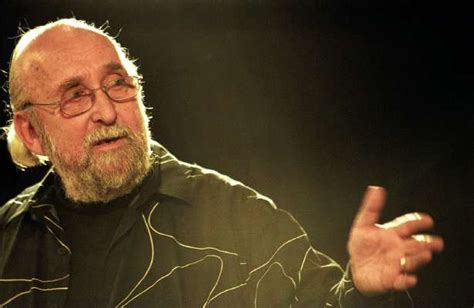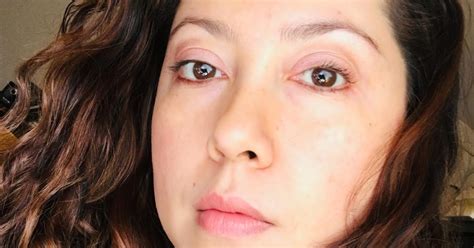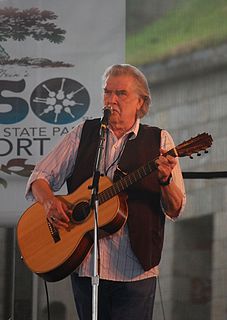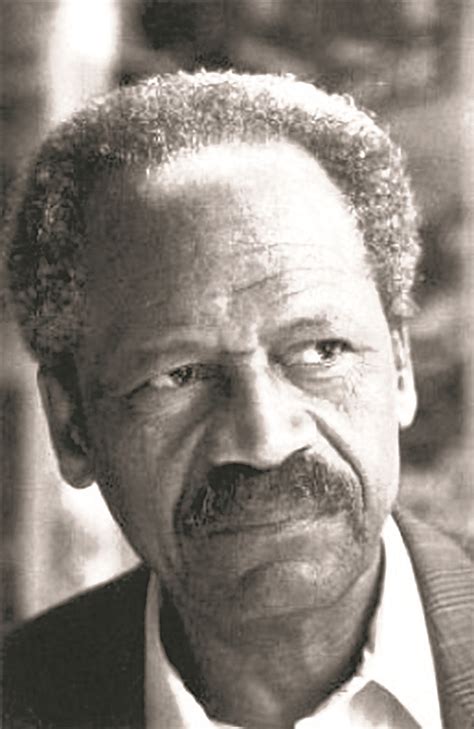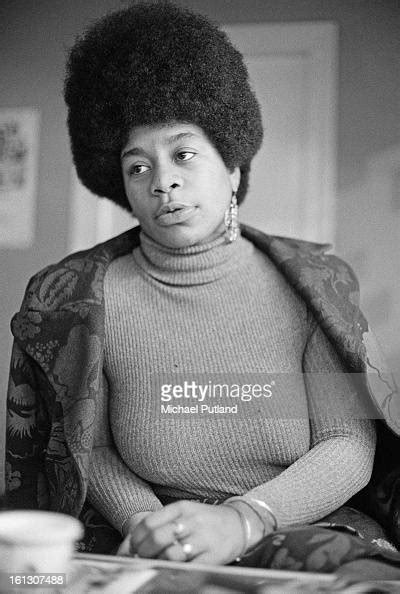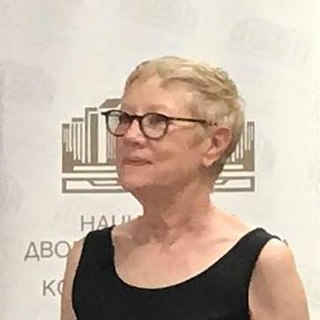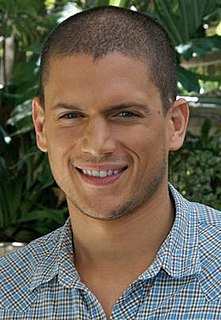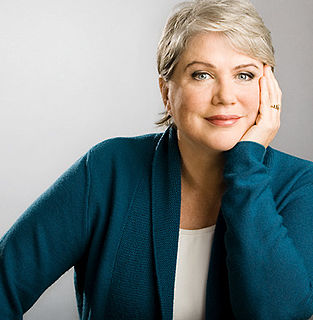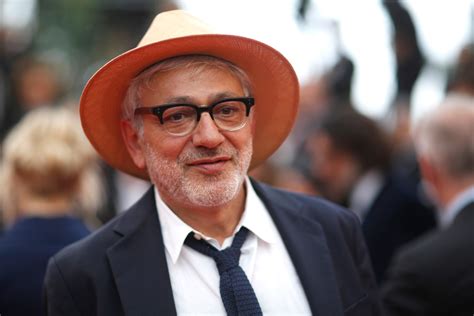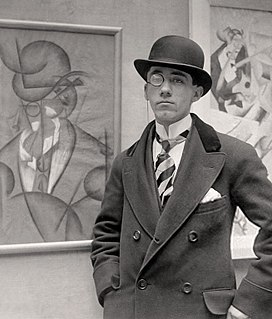Top 708 Poetic Quotes & Sayings - Page 12
Explore popular Poetic quotes.
Last updated on December 25, 2024.
In 1966 Rolf Edberg wrote "This is mankind's home", "in the narrow borderland between the deathly heat beneath our feet and the coldness of space above us". He describes the fragility of our existence in poetic terms: "the atmospheric layer is so thin that it cannot be represented on any globe with even the finest brushstroke. At its thickest, it is only a few fractions of a millionth of the Earth's radius. This thin layer is what makes the difference between our planet and the sterile landscape of the moon." After reading that, one does feel the need to take better care of this fragile layer.
The music of all the different media of life-memories, images, feeling-tones, poetic-musical connotations of phrasing-is kaleidoscopic and doesn't repeat itself or recur. -People who think they are trapped in a river of regularized and ever-repeating time are merely the victims of their own ordinarizing minds that have elaborated for them a prison-cell of everydayness. The fountains of time, history, life, inspiration, etc. are fresh every instant, if one knows how to grasp them with some finesse: every instant within natural, historical, and personal time is unique.
Sometimes I'm drawing onto a computer directly, sometimes I'm drawing on paper , so I can't really talk about drafts. It's just like having soft clay until it hardens. At least as much of the problem has to do with the decisions of what to represent, how to represent that, and how to reduce it down. The words in the balloons aren't particularly poetic necessarily, but it has the same problem as poetry, which is that one has to do great reduction. And if I tried to draw everything, you'd just have a tangled mess of a picture. The stripping down takes much longer than building up.
The New York book was a visual diary and it was also kind of personal newspaper. I wanted it to look like the news. I didn’t relate to European photography. It was too poetic and anecdotal for me… the kinetic quality of new york, the kids, dirt, madness—I tried to find a photographic style that would come close to it. So I would be grainy and contrasted and black. Id crop, blur, play with the negatives. I didn’t see clean technique being right for New York. I could imagine my pictures lying in the gutter like the New York Daily News.
My literary criticism has become less specifically academic. I was really writing literary history in The New Poetic, but my general practice of writing literary criticism is pretty much what it always has been. And there has always been a strong connection between being a writer - I feel as though I know what it feels like inside and I can say I've experienced similar problems and solutions from the inside. And I think that's a great advantage as a critic, because you know what the writer is feeling.
The simulator is the stage in-between television and virtual reality, a moment, a phase. The simulator is a moment that leads to cyberspace, that is to say, to the process because of which we now have two bottles instead of one. I might not see this virtual bottle, but I can feel it. It is settled within reality. This explains why the word virtual reality is more important than the word cyberspace, which is more poetic.
I have a love-hate relationship with New Orleans, which is the strongest sort of relationship. I've had some extraordinary, beautiful, poetic experiences in this city and I've had some terrible experiences in this city. I'm drawn to New Orleans, in many ways feel I grew up in New Orleans, even though I'm from the West.
The millions are awake enough for physical labor; but only one in a million is awake enough for effective intellectual exertion, only one in a hundred million to a poetic or divine life. To be awake is to be alive. I have never yet met a man who was quite awake. How could I have looked him in the face? We must learn to reawaken and keep ourselves awake, not by mechanical aids, but by an infinite expectation of the dawn, which does not forsake us in our soundest sleep. I know of no more encouraging fact than the unquestionable ability of man to elevate his life by conscious endeavor.
The difference between prose logic and poetic thought is simple. The logician uses words as a builder uses bricks, for the unemotional deadness of his academic prose; and is always coining newer, deader words with a natural preference for Greek formations. The poet avoids the entire vocabulary of logic unless for satiric purposes, and treats words as living creatures with a preference for those with long emotional histories dating from mediaeval times. Poetry at its purest is, indeed, a defiance of logic.
A universe comes to contribute to our happiness when reverie comes to accentuate our repose. You must tell the man who wants to dream well to begin by being happy. Then reverie plays out its veritable destiny; it becomes poetic reverie and by it, in it, everything becomes beautiful. If the dreamer had "the gift" he would turn his reverie into a work. And this work would be grandiose since the dreamed world is automatically grandiose.
I'm saying that the domain of poetry includes both oral & written forms, that poetry goes back to a pre-literate situation & would survive a post-literate situation, that human speech is a near-endless source of poetic forms, that there has always been more oral than written poetry, & that we can no longer pretend to a knowledge of poetry if we deny its oral dimension.
Raw and delicate, poignant and poetic, Shelby Smoak’s Bleeder exposes the sorrow and sometimes sweetness of coming to age with HIV. In a world of misunderstanding and stigmas, the young Smoak searches for love and acceptance, and his readers can’t help but find themselves becoming emotionally attached to him. His is an observant and encompassing story, noticing the brilliance of existence that others might take for granted. The sunsets written here are more lovely than in life.
Once I started writing all the time and interacting with poets, I made a conscious decision to identify myself as a poet. It's funny how much a single word can provide focus and direction. As soon as I claimed that identity, I started clearing more and more space for poetry in my life and applying poetic tools to other areas of my life. The world became a different place, and I witnessed it through different kinds of eyes.
English has always been my musical language. When I started writing songs when I was 13 or 14, I started writing in English because it's the language in between. I speak Finnish, I speak French, so I'll write songs in English because that's the music I listen to. I learned so much poetry and the poetic way of expressing myself is in English.
Most of the really good songs are dead true. ... It had to have happened to have the song be there. Every time I've tried to make stuff up it just kind of falls flat. So the majority of my work is something that happened to me, I saw happen to someone else, or a friend of mine told me happened. There is a certain amount of theatrical and poetic license. People are supposed to like it, that's why you're doing it. It's supposed to be fun. It's not brain surgery, it's heart surgery. They're just songs.
So you got rid of your astonishment that someone could write so much more dynamically than you. You stopped cherishing your aloneness and poetic differentness to your delicately flat little bosom. You said: she's to good to forget. How about making her a friend and competitor — you could learn alot from her. So you'll try. So maybe she'll laugh in your face. So maybe she'll beat you hollow in the end. So anyhow, you'll try, and maybe, possibly, she can stand you. Here's hoping!
For me, the promised land, always seeming just beyond my reach, is the poetic masterpiece, that perfect union of words in cadence, each beckoned and shined and breathed into place, each moving in well-tried harmony of tone and texture and meaning with its neighbors, molding an almost living being so faithful to observable truth, so expressive of the mass of humanity and so aglow with the beauty of just proportions that the reader feels a chill in his legs or a catch in his throat.
I have a notebook that I take with me everywhere. I free-write in it when there are situations that I know I can write a song about. I will just start writing everything that I can think of while trying to write some things that are kind of poetic or sound like they could be in a song. Then, after the music is written, I go back and look at my subjects to see which one I think woud go with what music. Then, I formulate it into a melody and get the song.
Whoever lives for poetry must read everything. How often has the light of a new idea sprung for me from a simple brochure! When one allows himself to be animated by new images, he discovers iridescence in the images of old books. Poetic ages unite in a living memory. The new age awakens the old. The old age comes to live again in the new. Poetry is never as unified as when it diversifies.
Abstract reason, formerly the servant of practical human reasons, has everywhere become its master, and denies poetry any excuse for existence.
Though philosophers like to define poetry as irrational fancy, for us it is practical, humorous, reasonable way of being ourselves. Of never acquiescing in a fraud; of never accepting the secondary-rate in poetry, painting, music, love, friends. Of safeguarding our poetic institutions against the encroachments of mechanized, insensate, inhumane, abstract rationality.
Here's what I want from a book, what I demand, what I pray for when I take up a novel and begin to read the first sentence: I want everything and nothing less, the full measure of a writer's heart. I want a novel so poetic that I do not have to turn to the standby anthologies of poetry to satisfy that itch for music, for perfection and economy of phrasing, for exactness of tone. Then, too, I want a book so filled with story and character that I read page after page without thinking of food or drink because a writer has possessed me, crazed with an unappeasable thirst to know what happens next.
Italian is a very different poetic situation and there are these hard and fast rhythmic periods, settenari, ottonari of seven and eight syllables. These are fundamental to the way people speak and write and breaking them is more radical in Italian than when we break a line. I'm sure there are Italian poets who want to write poetry as prose and break these Petrarchan rules. And breaking them is fun and a valid thing to do. But I'm more interested in trying to write poetry that absorbs tradition and uses it in new ways, and doesn't throw it out.
With impeccable timing and a fine instinct for the telling detail, Francesca Abbate evokes the plenitudes and the deprivations of human habitation, the nurturing richness of landscape, and the soul-wound wrought by casual defacement. Abbate has a superb capacity for distillation and a mastery of poetic line, and her diction is remarkably flexible, accommodating both the demotic and the lyrical. Her poems are as consistent in quality as they are varied in pacing, surface, and tone. A fine first book.
For a long time, early industrializing countries were absorptive. They were endlessly able to absorb new labor inputs to keep expanding. This was both an economics and a worldview. Here in the United States, we have the Statue of Liberty sitting in the harbor in New York, which says in huge letters, We stand for absorptive capital. A poetic version: "Give me your tired, your poor, your huddled masses." But what it means is, Come here, we'll absorb you. We absorb these inputs and add them to our growing economy, and we manage this with liberal democracy.
I lately met with an old volume from a London bookshop, containing the Greek Minor Poets, and it was a pleasure to read once moreonly the words Orpheus, Linus, Musæus,--those faint poetic sounds and echoes of a name, dying away on the ears of us modern men; and those hardly more substantial sounds, Mimnermus, Ibycus, Alcæus, Stesichorus, Menander. They lived not in vain. We can converse with these bodiless fames without reserve or personality.
I have a few minor rules for myself but I break them all the time. For example, when translating from Romance languages to English, there is often a choice between a Latinate cognate and a Germanic equivalent. An easy example would be the Portuguese escuridão: English offers both obscurity and dark or darkness, and some translators will tell you the Latinate word is generally reserved for poetic and figurative expressions, while the Germanic word is used for colloquial and idiomatic use.
A ghostly side note Soldier boy Miller played a Lucifer-like character in the final two episodes of Joan of Arcadia. Coincidence I do find it strangely poetic, ... that a character who shows up on a show about God to play something kind of satanic winds up in the very last two episodes of that show, and then appears in the show that replaces that show on its exact time and night the following season.
Oh my, I've just discovered what science shows us about our humble but spectacular place in the universe, and I have to say: it is thrilling and mind-boggling beyond all imaginings! It makes the Bible so puny and uninspired, and certainly less poetic, by comparison. I'm terribly sorry. I sincerely misunderstood so much. I almost wish there were a God so I could be punished for all the suffering I have obliviously caused in the world. But since there will be no cosmic punishment for me, I will spend what time I have left working in a family planning clinic in Latin America. Good day.
The rhythmic pattern of the poem, which forces continuity of attention - incites a pleasurable compulsion to 'follow' - is either a tried metrical suasion-contrivance or a specially invented pattern of physical insistences, equally, if not more, binding in its effect on the reader. From a straight linguistic point of view, there is room for wonder if there is not latent vice in this environment in which pleasurable physically-compelled responses, produced by incidents of poetic utterance, are identified with the Good.
At first I protested and rebelled against poetry. I was about to deny my poetic worlds. I was doing violence to my illusions with analysis, science, and learning Henry’s language, entering Henry’s world. I wanted to destroy by violence and animalism my tenuous fantasies and illusions and my hypersensitivity. A kind of suicide. The ignominy awakened me. Then June came and answered the cravings of my imagination and saved me. Or perhaps she killed me, for now I am started on a course of madness.
I never considered myself an Americana artist, but I'm a huge fan of old-time music from the States, the recordings that were made in the '20s and '30s. Trying to chase down the exact stylistic trappings of that stuff always felt like a dead end. That spirit of directness and economy, but also the poetic pungency of the writing and almost ugly, or raw, performance - all that seemed like the real message. I've just tried to somehow stay true to that feeling.
[Raphael's] great superiority is due to the instinctive sense which, in him, seems to desire to shatter form. Form is, in his figures, what it is in ourselves, an interpreter for the communication of ideas and sensations, an exhaustless source of poetic inspiration. Every figure is a world in itself, a portrait of which the original appeared in a sublime vision, in a flood of light, pointed to by an inward voice, laid bare by a divine finger which showed what the sources of expression had been in the whole past life of the subject.
The desire to express in an art form and to compose a tableau and vignette whether it's humorous, burlesque, or poetic comes simply from a desire to compose an image for cinema. It is not my fault that when I go to Ramallah there is a checkpoint and therefore it enters my film. Tell me a way to avoid that politicized image. The fact is that the police are everywhere, the army everywhere and occupation is total. Whether it's a love story or a thriller, you place the camera and these realities will cross the frame.
Mathematics is a form of poetry which transcends poetry in that it proclaims a truth; a form of reasoning which transcends reasoning in that it wants to bring about the truth it proclaims; a form of action, of ritual behavior, which does not find fulfilment in the act but must proclaim and elaborate a poetic form of truth.
I think a lot about the poems I wasn't able to write...I masturbrated...Solitude is essentially a matter of pride; you bury yourself in your own scent. The issue is the same for all real poets. If you've been happy for too long, you become banal. By the same token, if you've been unhappy for a long time, you lose your poetic power...Happiness and poverty can only coexist for the briefest time. Afterword either happiness coarsens the poet or the poem is so true it destroys his happiness.
Yes, I heard my people singing!-in the glow of parlor coal-stove and on summer porches sweet with lilac air, from choir loft and Sunday morning pews-and my soul was filled with their harmonies. Then, too, I heard these songs in the very sermons of my father, for in the Negro's speech there is much of the phrasing and rhythms of folk-song. The great, soaring gospels we love are merely sermons that are sung; and as we thrill to such gifted gospel singers as Mahalia Jackson, we hear the rhythmic eloquence of our preachers, so many of whom, like my father, are masters of poetic speech.
Prophetic utterance, like poetic utterance, transforms experience and moves the receiver to new attitudes. The kinds of experience--the recognitions or revelations--out of which both prophecy and poetry emerge, are such as to stir the prophet or poet to speech that may exceed their own known capacities; they are "inspired," they breathe in revelation and breathe out new words; and by so doing they transfer over to the listener or reader a parallel experience, a parallel intensity, which impels that person into new attitudes and new actions.
A man's country is not a certain area of land, of mountains, rivers, and woods, but it is a principle: and patriotism is loyalty to that principle. In poetic minds and in popular enthusiasm this feeling becomes closely associated with the soil and the symbols of the country. But the secret sanctification of the soil and the symbol is the idea which they represent, and this idea the patriot worships through the name and the symbol, as a lover kisses with rapture the glove of his mistress and wears a lock of her hair upon his heart.
When I was young, there was an amazing publication called The Whole Earth Catalog, which was one of the bibles of my generation. It was created by a fellow named Stewart Brand not far from here in Menlo Park, and he brought it to life with his poetic touch. This was in the late 1960's, before personal computers and desktop publishing, so it was all made with typewriters, scissors, and polaroid cameras. It was sort of like Google in paperback form, 35 years before Google came along: it was idealistic, and overflowing with neat tools and great notions.
With a historical novel you know that liberties are being taken. Since Walter Scott, we know that poetic license, dramatic license, that events been conflated and that liberties have been taken, characters ditto, dates rearranged. But people don't seem to understand that movies are fictions, they are dramatizations, at least historical movies, and we should accord the moviemakers some of the same understanding and latitude. When you go to a movie you know it's a dramatization and not history.
Truth is a mobile army of metaphors, metonyms, anthropomorphisms, in short a sum of human relations which have been subjected to poetic and rhetorical intensification, translation and decoration […]; truths are illusions of which we have forgotten that they are illusions, metaphors which have become worn by frequent use and have lost all sensuous vigour […]. Yet we still do not know where the drive to truth comes from, for so far we have only heard about the obligation to be truthful which society imposes in order to exist" from, "On Truth and Lying in a Non-Moral Sense".
The new "ambiguity" means, in a way adjudged favorable to literary, poetic, intellectually and psychologically well-devised and praiseworthily executed linguistic performance, uncertainty of meaning, or difficulty for the interpreter in identifying just what the meaning in question is: it means the old meanings of ambiguity with a difference. It means uncertainty of meaning (of a word or combination of words) purposefully incorporated in a literary composition for the attainment of the utmost possible variety of meaning-play compressible within the verbal limits of the composition.
The late John Jacob Astor, a personage little given to poetic enthusiasm, had no hesitation in pronouncing my first grand point to be prudence; my next, method. I do not speak it in vanity, but simply record the fact, that I was not unemployed in my profession by the late John Jacob Astor; a name which, I admit, I love to repeat, for it hath a rounded and orbicular sound to it, and rings like unto bullion. I will freely add, that I was not insensible to the late John Jacob Astor's good opinion.
Another year is fast approaching. Go be that starving artist you’re afraid to be. Open up that journal and get poetic finally. Volunteer. Suck it up and travel. You were not born here to work and pay taxes. You were put here to be part of a vast organism to explore and create. Stop putting it off. The world has much more to offer than what’s on 15 televisions at TGI Fridays. Take pictures. Scare people. Shake up the scene. Be the change you want to see in the world.
I have just been through the process of killing a cistudo for the sake of science; but I cannot excuse myself for this murder, and see that such actions are inconsistent with the poetic perception, however they may serve science, and will affect the quality of my observations. I pray that I may walk more innocently and serenely through nature. No reasoning whatever reconciles me to this act. It affects my day injuriously. I have lost some self-respect. I have a murderer's experience to a degree.
Futurism and Cubism are comparable in importance to the invention of perspective, for which they substituted a new concept of space. All subsequent movements were latent in them or brought about by them.. ..the two movements cannot be regarded as in opposition to each other, even though they started from opposite points; I maintain [an idea approved by Appolinaire and later by Matisse that they are two extremes of the same sign, tending to coincide at certain points which only the poetic instinct of the painter can discover: 'poetry' being the content and 'raison d'tre' of art.
There's a kind of poetic aspect to inert gas. And remember, first of all, they were completely unknown a hundred years earlier. We just didn't know about them. And then when they were discovered in the atmosphere, the idea that this is a material that would breathe in and exhale and becomes part of us for a while made it even more intriguing. The names, the Greek names, are interesting, too - if you translate neon, xenon and so forth are kind of interesting.
The adoption of the required attitude of mind towards ideas that seem to emerge "of their own free will" and the abandonment of the critical function that is normally in operation against them seem to be hard of achievement for some people. The "involuntary thoughts" are liable to release a most violent resistance, which seeks to prevent their emergence. If we may trust that great poet and philosopher Friedrich Schiller, however, poetic creation must demand an exactly similar attitude.










